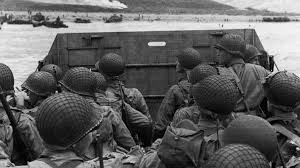Modern Europe and the Challenges
Imperialism and the Cold War
The downfall of the Ottoman Empire contributed to the major development in many European countries. In addition, the Industrial Revolution in Europe helped them to be able to make amazing products that could be sold to other nations with exchange of money. Having no other enemies that would block the relationships with other countries, European countries such as the Great Britain, France, Netherlands, Belgium, and Russia expanded its market through using the process of annexation. These countries also fought each other to gain more influence from other countries, and the examples of this conflict could be displayed through the Crimean War, World War I, and World War II. After World War II, many European countries realized that annexation of the countries only bring destruction to themselves; through these thoughts, many of the colonies were released as its independent country. World War II was the terminal point of European countries being the number one influence over the world. Two supernations called the United States and the Soviet Union rose over the former supernations of Great Britain and France. The war of ideology began after World War II, having many European countries to be divided within the ideologies of Capitalism or Communism. The United States made an alliance power called NATO to stand against the united Soviet Union's alliances under the Warsaw Pact. When the Soviet Union has turned away from Cold War through the governer Gorbachev who wanted the reformation of Socialism, it signaled the victory of Capitalism over Communism, as the Communist governments of the "satellite countries" in Eastern Europe quickly started to collapse.
Modern Europe
Today, Europe is facing a whole new challenge; the threat of terror. United States and many other parts of the world were already the victims of terror from the extremest groups such as the Al Queda, ISIS, and other terrorist groups. The different beliefs of various religions and worshippers have clashed in the past and still does today. Some major examples of ongoing religious conflicts that are extremely complicated are the Balkan Peninsula and Israel/Palestine. The Balkan Peninsula was once controlled by one of the most influential Islamic empire called the Ottoman Empire for several hundred years until the empire collapsed after World War I. For this reason, the Orthodox, Catholics, Protestants, and Muslims in this region bring forth countless disputes and quarrels; in fact, the Balkans is one of the most prioritized area in the world for peace negotiation. Just like the Balkan Peninsula, Israel also had the similar problem; ever since Jewish people were kicked out of Israel by the Romans, they were spread all across Europe (Diaspora) and were heavily persecuted. Israel (Palestine region) was occupied by the Arabian people who settled for about 2000 years since. However, through the support of the United States, the Jewish people were able to once again establish Israel in 1948, but were constantly attacked by the surrounding Arabic nations. The solution to these complicated religious conflicts are completely dependent on the European nations that have succeeded for the first time in history to unite together as Europe United (EU). As history never stops, all that the Europeans could do today is just do their best and see whether Europe as a whole will be able to gain or lose more influence over other countries in the future.



Homepage
Colossal and Medeival Europe
Renaissance





